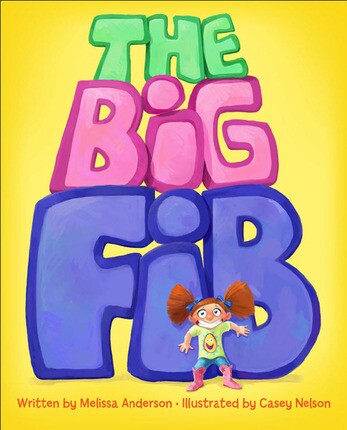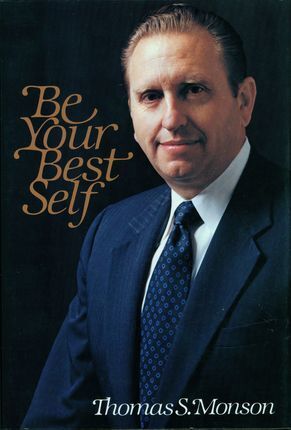Thought:
"Honesty is more than not lying. It is truth telling, truth speaking, truth living, and truth loving [. . .] Honesty is a moral compass to guide us in our lives [. . .] Honesty is a principle, and we have our moral agency to determine how we will apply this principle. We have the agency to make choices, but ultimately we will be accountable for each choice we make. We may deceive others, but there is One we will never deceive."
(President James E. Faust, "Honesty—a Moral Compass" October 1996 general conference)
Song:
"Do What Is Right," Hymns #237
Scripture:
"Verily I say unto you, all among them who know their hearts are honest, and are broken, and their spirits contrite, and are willing to observe their covenants by sacrifice—yea, every sacrifice which I, the Lord, shall command—they are accepted of me" (D&C 97:8).
Conference Talk:
"Three Towels and a 25-Cent Newspaper" by Richard C. Edgley, October 2006 general conference
"I Believe in Being Honest and True" by Ann M. Dibb, April 2011 general conference
Lesson/Story:
The Lord wants you to be honest with yourself and with your fellowmen.
One of the Ten Commandments calls for honesty: "Thou shalt not bear false witness" (Exodus 20:16).
God himself is described as "a God of truth and without iniquity" (Deuteronomy 32:4).
Jesus Christ proclaimed that He is "the way, the truth, and the life" (John 14:6).
When we are commanded to be like God, that involves being as honest as God is. We must speak the truth and be honest in our actions. If we always deal justly with others and are true to ourselves, we are promised that "the truth shall make you free" (John 8:32).
President Howard W. Hunter said the following about honesty:
We often speak of that scriptural reference, “Man is that he might have joy” (see 2 Ne. 2:25). There is a joy that comes to one from being honest. Let me tell you how. By this means you can have the companionship of the Master and you can have the Spirit of the Holy Ghost. Violations of the code of honesty will deprive you of these two great blessings. Could you believe that one who would lie or cheat or violate the Word of Wisdom could have the companionship of the Master or have the Spirit of the Holy Ghost? If we are sensitive to our relationship to the Savior, we must be honest in the little things as well as the big. We should always remember that we are never alone. There is no act that is not observed; there is no word spoken that is not heard; there is no thought conceived in the mind of man that is not known to God. There is no darkness that can conceal the things we do. We must think before we act [. . .] Think of what an act of dishonesty will do to you. It does not make any difference whether it is great or small. First, it may affect your whole life. You will have a hard time living it down. It will be difficult for you to forget about it because it will be engraved upon your conscience. Secondly, it will affect others in many ways. The injury is far-reaching. Its malignancy extends to your friends, your relatives, your loved ones, and persons you may never see. Thirdly, it affects your relationship to the Savior. It closes the channel of communication and shuts out light from your life. ("Be Honest with Yourself" originally printed in the February 1978 New Era)
In the story of Aladdin, the eponymous "street rat" is described as "a diamond in the rough." This means that he may not seem very important on the outside, but he really has great worth. We see this from the start. Even though he has nothing and is looked down on for his poverty, Aladdin does what he can to help others.
At one point, Aladdin comes to the rescue of Princess Jasmine, without knowing that she is royalty. He thinks she is just as poor as he is. But when he finds out who she is, Aladdin thinks that he needs wealth and status to win her heart.
We have a tendency to try to change ourselves in order to "fit in." Elder Dallin H. Oaks talks about the danger in doing this:
“When we choose to define ourselves or to present ourselves by some characteristic that is temporary or trivial in eternal terms, we de-emphasize what is most important about us and we overemphasize what is relatively unimportant. This can lead us down the wrong path and hinder our eternal progress” (“How to Define Yourself,” New Era, June 2013, 48).
In the case of Aladdin, he didn't put enough value in the qualities of his heart, but instead focused on having riches and prestige.
When he comes across a genie's lamp and is granted three wishes. Aladdin wishes to be a prince so that he can win Jasmine's heart. The genie gives Aladdin wealth and riches (and even a new name—Prince Ali) to win the princess's favor.
But Jasmine is unimpressed with Prince Ali, and she misses the street boy she knew as Aladdin. She liked him even though he had no wealth to his name.
Eventually, "Prince Ali" does woo the princess (thanks to a magic carpet and an Academy Award-winning song), but he continues to lie about his identity.
Aladdin's obsession with being a prince leads to him breaking a promise he made to the genie. Aladdin had promised the genie that after using two wishes, he would use the third wish to set the genie free. But after lying to Jasmine about really being a prince, Aladdin goes back on his promise, too afraid that if the genie is freed, Aladdin will no longer be "Prince Ali."
In our own lives, we are often afraid of failure caused by our own inadequacies. We try to hide our weaknesses behind lies, hoping that no one will notice our faults.
But Elder Glenn L. Pace has this to say about being true to ourselves and relying on the Lord:
Many Latter-day Saints know the Church is true but have unhealthy feelings about their own inadequacies, real or imagined. The scriptures inform us that we all have weaknesses and that there is a place for them in our spiritual progress: “If men come unto me I will show unto them their weakness. I give unto men weakness that they may be humble; and my grace is sufficient for all men that humble themselves before me; for if they humble themselves before me, and have faith in me, then will I make weak things become strong unto them” (Ether 12:27) [. . .] To be humble is to recognize our utter dependence upon the Lord. We are conscious of our strengths, but we do not exalt ourselves and become prideful, for we know that all good things ultimately come from God. We are conscious of our weaknesses, but we know the Lord can use those very weaknesses to bless our lives and that through Him, as we learn from the book of Ether, our weaknesses can become strengths.
Aladdin makes the wrong choice and continues his facade, breaking his promise to the genie. His perpetuated lies lead to the sorcerer Jafar taking the genie's lamp and getting three wishes of his own, which he uses for evil. Aladdin's lies are exposed, and it takes all of Aladdin's courage and cleverness to defeat Jafar.
In the end, Jasmine loves Aladdin despite his poverty and low status, and Aladdin decides to keep his promise and free the genie. Everything works out in the end, after Aladdin learns that true worth comes from within and that the truth sets him free.
Though Aladdin is fictional, the principles we can learn from this movie are very true, as taught by prophets past and present. Tell the truth, be honest with yourself and others, and always keep your word. Remember, Jasmine liked the old Aladdin. She wasn't drawn to him because he was a rich, handsome prince.
When we are true to ourselves, we'll find friends who like us just how we are, and we'll find satisfaction in our lives. The truth really does set us free.
Activity:
(This activity was found at overthebigmoon.com)
Materials: Ice cream, chocolate syrup, a bowl, spoons, and salt.
Instructions: Dish a scoop of ice cream into the bowl and hand each family member a spoon. Explain that sometimes we make bad choices. At this point, take the salt and sprinkle it all over the top of the ice cream. The salt represents a bad mistake made.
Then talk about how sometimes we are embarrassed about our choices, so we try to cover them up with a lie. At this point, take the chocolate syrup and cover all the salt. Point out that you can't see the salt now. Do they think they'll be able to taste it? Give each willing family member a small bite of the ice cream (from the top, where there's lots of salt). It should taste terrible.
Explain how this is like lying. We try to cover up what we did, but that doesn't actually make it go away. The only way to get rid of the salt is to start over, go back and make the mistake right however we can. (You can get extra creative with this object lesson and its analogies. See the website for more ideas!) Dish out good, salt-free bowls of ice cream for dessert!
Here are some other resources you can use to teach your family about being honest with yourself and others:
The Big Fib by Melissa Anderson and Casey Nelson
The Big Fib is a beautifully illustrated picture book that tells the story of a little girl who breaks her mother's cookie jar. But rather than tell the truth, she begins with a tiny lie that quickly spirals out of control. In the end, she realizes it is always better to tell the truth and face the consequences than to deal with a fib that keeps getting bigger and bigger.
Be Your Best Self by President Thomas S. Monson
One of the great purposes of our existence on earth is to perfect ourselves, to learn to become more like God. The Savior's admonition "Be ye therefore perfect" was not limited in time or scope; it applies to his disciples in every age, including this last dispensation.
Be Your Best Selfcan help in the constant struggle for perfection. Pertinent advice and faith-promoting stories combine to create a valuable blueprint for self-improvement.
See also: FHE: Lessons from The Lion King, FHE: Lessons from Finding Nemo




